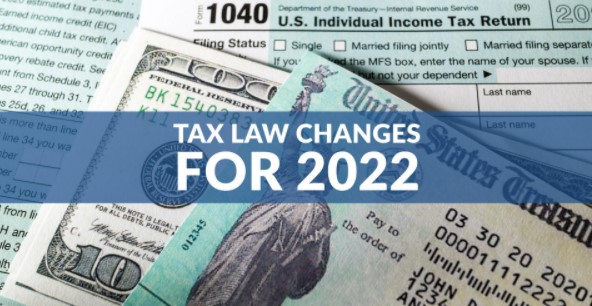Tax season is quickly approaching, although an official start date has not been announced yet. Typically, returns begin to be accepted by the end of January. As of now, all returns (or an automated extension) must be filed by April 15; although the IRS extended the deadline in both 2020 and 2021, there is no expectation of the deadline being extended in 2022.
There are three major changes to the tax laws that Americans should be aware of for the 2022 season.
Monthly Child Tax Credits
In 2021, the IRS sent child tax credit payments to qualifying families. If you received these payments, you should receive Letter 6419 to include with your tax documents. Depending on how much money you received, your refund may be larger or smaller than you expected, or you may owe additional taxes back to the IRS.
It’s important that you compare what you received to the amount that you are entitled to. It’s possible that you qualify for a higher amount than you will receive through your refund. It is also possible that you were overpaid and will need to pay the money back to the IRS.
Reasons that you may have been overpaid include:
- Your qualifying child lives with another parent who is receiving payments
- Your income or filing status has changed
- You resided outside of the United States for more than half of 2021
The Child Tax Credit for 2021 is up to $3,600 for children under 6, and up to $3,000 for children 6-17. Monthly payments were sent out from July-December, and families received up to 50% of the amount they qualify for. Families that qualify for more can claim the additional amount on their tax returns.
Some families opted out of receiving monthly payments. They can claim the full amount that they qualify for on their tax return.
Third Stimulus Payment Recovery Rebate Tax Credits
A third economic impact payment, also known as a stimulus payment, was sent out in 2021. The full amount of the payment was $1,400. If you didn’t receive this payment or didn’t receive the full amount, you may qualify for the Recovery Rebate Tax Credit.
To receive this tax credit, you must file a tax return, even if you aren’t typically required to do so. You will receive Letter 6475 from the IRS that will give you the amount you received for your third stimulus payment. You will need to know the stimulus payment amounts for yourself, your spouse, and any dependents in order to claim your tax credit.
There is a Recovery Rebate Tax Credit worksheet that you have to fill out to claim your credit on your tax return.
Charitable Donations Don’t Need to be Itemized
Up to $300 for cash donations, or $600 for married filers, can be deducted without itemizing your charitable contributions, which is new.
And just for 2021, those who claim charitable contributions as itemized deductions can claim cash donations up to 100% of their adjusted gross income. This number is typically limited to 60% of adjusted gross income.
However, the increased limitation is not automatic; taxpayers must opt for the increased limitation on their 2021 tax returns.




